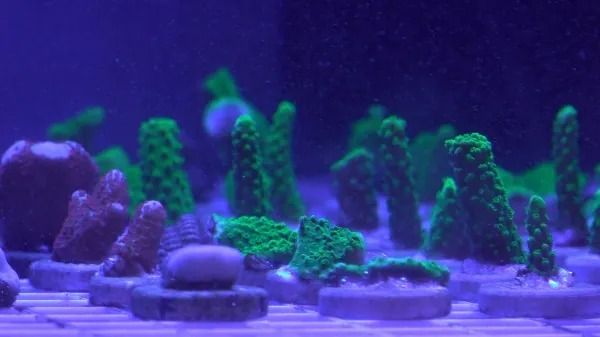
Could a Multivitamin Hold the Key to Saving Coral Reefs? Groundbreaking Research Shows Promise!
2024-11-19
Author: Nur
Woods Hole, Mass. (November 19, 2024) — In an extraordinary breakthrough, researchers at the Woods Hole Oceanographic Institution (WHOI) have uncovered evidence suggesting that infusing coral reefs with essential nutrients, akin to giving them a multivitamin, could significantly enhance their health and resilience!
Coral reefs, which are vital to marine biodiversity, are increasingly under threat from climate change, particularly rising ocean temperatures that lead to coral bleaching and extreme weather events like hurricanes. To combat these threats, scientists have been conducting innovative lab experiments using nutrient-infused tiles. Preliminary results indicate that these tiles, enriched with crucial metal micronutrients such as manganese, zinc, and iron, bolster the immune systems of corals, making them more resistant to stress.
“We’ve observed that corals grown on these specially designed tiles exhibit marked resilience to heat stress,” explains Colleen Hansel, a senior scientist and marine chemist at WHOI. “The rapid increase in water temperatures, coupled with an active hurricane season, has delayed our field trials. However, over a year’s worth of lab data suggests that this nutrient strategy could be a game-changer for coral restoration efforts.
To put these findings into practice, the research team plans to integrate these nutrient-infused tiles into a 20-square-meter (216-square-foot) artificial reef structure, collaboratively designed with experts from the University of the Virgin Islands (UVI). This artificial reef aims not only to support juvenile corals and encourage larval settlement but also to disperse essential nutrients into the surrounding waters, enhancing coral growth and recovery.
“The artificial reef will provide a protective barrier against storm surges and coastal erosion while offering refuge for corals adversely affected by climate change,” says Marilyn Brandt, a coral disease ecologist at UVI. This innovative approach aims to help revive and protect natural reefs that have suffered heavily from marine heat waves and severe storms.
However, the research is still in its early stages, and field testing will be crucial to ensuring that the added nutrients do not favor invasive species or a single type of coral. The goal is to create a thriving and diverse ecosystem that will provide essential services for marine life.
“It’s vital for us to ensure our artificial reef closely resembles the natural reef ecosystem,” Hansel emphasizes. “We’re not just looking to cultivate coral; we need to incorporate a variety of organisms, such as sponges and anemones, to create a holistic and healthy habitat. These interactions are fundamental to the overall success of the reef.”
With climate change threatening marine ecosystems globally, this pioneering research could herald a new era in coral conservation. Will this multivitamin strategy emerge as the missing link in coral reef restoration? Time will tell, but the potential impacts are undeniably exciting! Keep your eyes peeled for updates on this groundbreaking initiative as it unfolds.



 Brasil (PT)
Brasil (PT)
 Canada (EN)
Canada (EN)
 Chile (ES)
Chile (ES)
 España (ES)
España (ES)
 France (FR)
France (FR)
 Hong Kong (EN)
Hong Kong (EN)
 Italia (IT)
Italia (IT)
 日本 (JA)
日本 (JA)
 Magyarország (HU)
Magyarország (HU)
 Norge (NO)
Norge (NO)
 Polska (PL)
Polska (PL)
 Schweiz (DE)
Schweiz (DE)
 Singapore (EN)
Singapore (EN)
 Sverige (SV)
Sverige (SV)
 Suomi (FI)
Suomi (FI)
 Türkiye (TR)
Türkiye (TR)